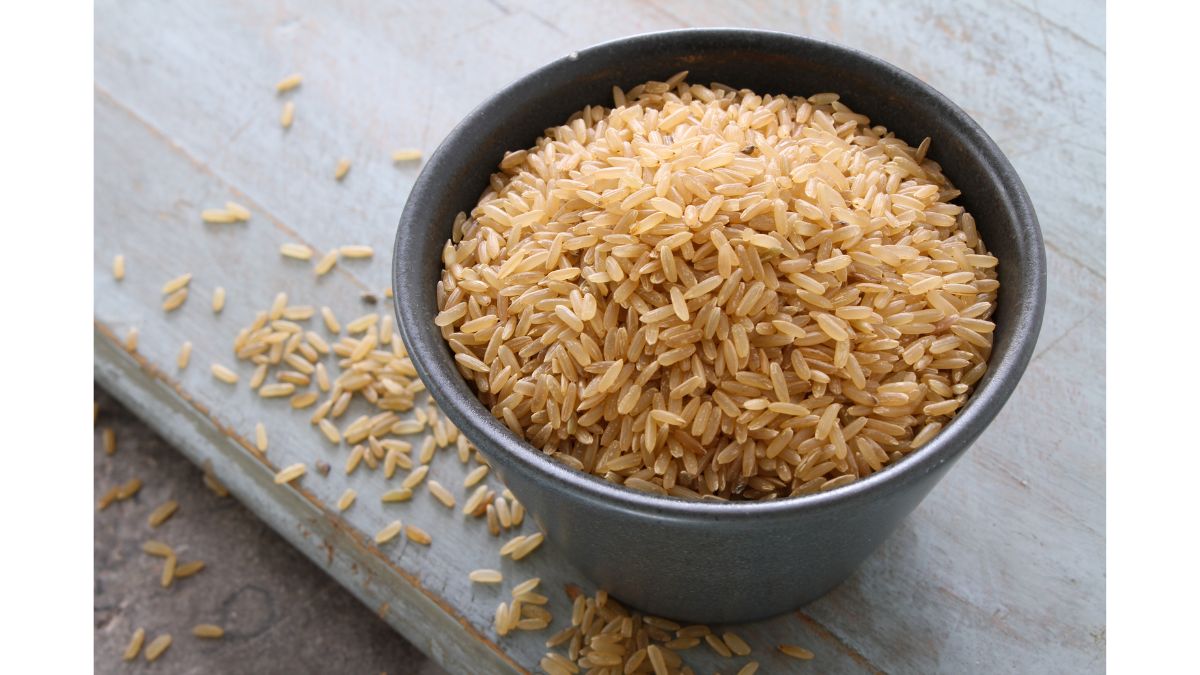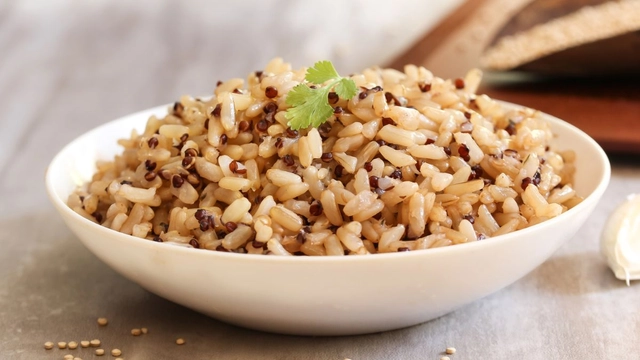- By Prerna Targhotra
- Tue, 11 Jun 2024 10:51 AM (IST)
- Source:JND
Health Risks Of Brown Rice: Among one of the most favourite staple foods is brown rice which people love to eat almost every day. Brown rice is usually low in the glycemic index which keeps your blood sugar levels in the normal range. The presence of several important nutrients in brown rice such as dietary fibre and potassium may reduce your risk of heart disease and stroke. Among several benefits, excessive consumption of brown rice can also have numerous disadvantages for the body. Here are some potential side effects of eating brown rice every day.
Side Effects Of Brown Rice
Excessive Fibre Intake
Eating good amounts of fibre can have incredible benefits for the body but consuming too much can lead to bloating, constipation, flatulence and gas. Consumption of too much fibre can cause intestinal blockage and abdominal pain.
Unwanted Weight Loss
Adding brown rice to your staple diet may make you shed several pounds and reduce your body mass index. A study by the National Library of Medicine found that people who consume more whole grains such as brown rice tend to lose more weight than those who eat few whole grains.
ALSO READ: 5 Homemade Drinks That You Should Consume Regularly To Keep Your Heart Healthy
Consumption Of Arsenic

Side Effects Of Brown Rice (Image Credits: Canva)
If you are someone who consumes large amounts of brown rice regularly, then you might want to stop as brown rice is 1.5 times higher in arsenic than white rice. Arsenic is a heavy metal that can be toxic to the body when taken in large quantities. High arsenic levels have been associated with miscarriages and stillbirths.
Less Nutrient Absorption
Brown rice is a good source of phytic acid, which prevents the absorption of iron, zinc, and calcium and may promote mineral deficiencies. Eating too much brown rice can cause the body to absorb less nutrients and lead to nutrient deficiency.
Digestive Problems
According to WebMD, brown rice retains the bran, germ, and endosperm from the seed of the rice plant. This means that brown rice contains higher amounts of fibre, unsaturated fatty acids, protein, minerals, vitamins, and starch than white rice.
ALSO READ: 5 Tips For Working Women To Strike Work-Life Balance And Achieve Success
(Disclaimer: This article is for informational purposes only. It is not a substitute for professional advice, diagnosis or treatment.)

